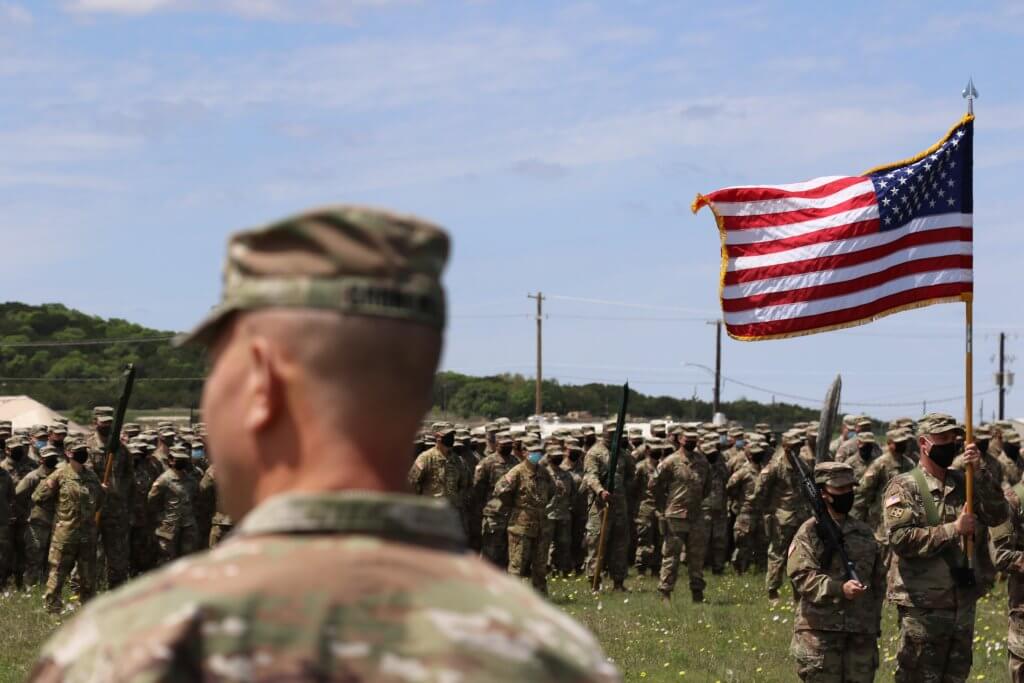Employer Support of the Guard and Reserve (ESGR) fielded thousands of inquiries in 2020 for conflict resolution stemming from an employee’s military commitment.
The Uniformed Services Employment and Reemployment Rights Act of 1994 (USERRA) is a federal law that establishes rights and responsibilities for uniformed service members and their civilian employers. Through a network of 400 volunteer ombudsmen spread across 54 state committees, ESGR handled 14,627 USERRA-related inquiries from service members and employers, assigned 1,306 cases for informal mediation, and resolved 1,021 of those cases. The most frequent requests focus on reinstatement after military leave, along with general questions about time off in advance of service, documentation, service verification, and types of protected service, according to an ESGR spokesperson.
Lt. Col. Colette Ching, Chief of USERRA Plans and Policy, has worked with ESGR for the last five years. She says a large part of her role has been leading the USERRA working group.
“We brought together representatives from the military departments, the reserve components, ESGR, and the Department of Labor to really take a look at USERRA — and DOD policy that’s related to USERRA — to see if there were improvements to policy that can be made,” Ching, who has served 10 years with Hawaii Air National Guard and 10 years with Air Force Reserve, said.
ESGR’s Customer Service Center is staffed by full-time government employees who, in addition to supporting and conducting extensive training for volunteer ombudsmen, respond to USERRA queries, monitor trends, and engage with the reserve components and federal agencies to improve compliance with USERRA. Ombudsmen also receive training in ethics, mediation, and case management.
In FY20, ombudsmen were able to resolve nearly 80% of the cases assigned, according to an ESGR spokesperson. They accomplish this through conflict resolution at the lowest level between a service member and his or her employer by conducting informal, neutral mediation and offering advice on how to strengthen the service member/employer relationship. Through this direct engagement, ESGR helps prevent cases from escalating to the Department of Labor or beyond.
Ching adds that outreach is another large component of building awareness of employment rights.
“ESGR’s role in the DOD is primarily one of education, and so that is both service members and employers, about their rights and responsibilities under the law. We have a pretty robust outreach program in all of the states and territories where we have personnel that go out and give unit briefs, we participate in mobilization and de-mobilization events, and Yellow Ribbon Program events on a state level,” she said.
At the core of ESGR’s mission is relationship building, so that members of the reserve component are able to fulfill their military commitments while maintaining gainful employment in the civilian sector. Ching says communication is an integral part of making that happen.
“Communication is key and obviously we find that a majority of employment-related conflicts are simply because someone may not understand their rights and responsibilities under USERRA, so definitely communicating can head off a lot of those conflicts. We recommend communicating your obligations as early as you can in advance,” she said. “And then if there are further questions, that’s where ESGR can come in — either with the Customer Service Center or your state level committee.”
Questions about USERRA? Contact the Customer Service Center at 800-336-4590, Option 1; or complete the USERRA Support request form on https://esgr.mil/USERRA/USERRA-Contact.
What happens after ESGR receives a request for support:
A member of the HQ ESGR Ombudsman Services Team assigns it to an ombudsman, preferably in the state where the service member is based.
Upon being assigned a case, the ESGR ombudsman contacts the service member to obtain additional information about the issue, and contacts the employer to discuss.

